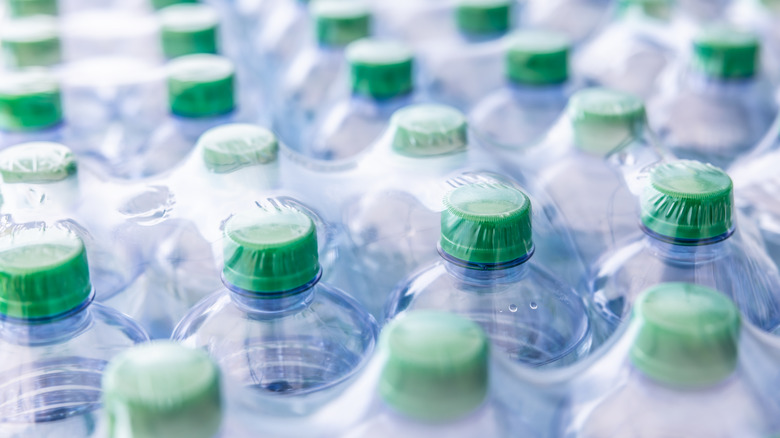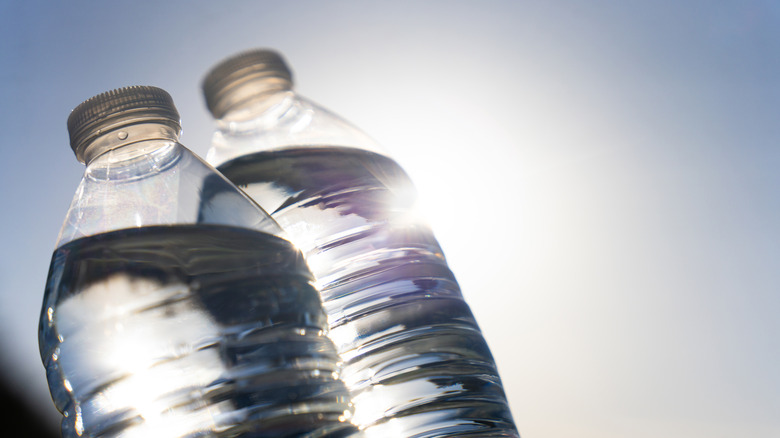The Best Places To Store Bottled Water, And One Spot You Should Definitely Avoid
There are many reasons to stock up on bottled water, including hydration and the fact that some foods are better when cooked in it. But you can't just buy five cases, shove them in your garage, and forget about them until you need them. In fact, your garage is actually the worst place you can store bottled water due to the presence of chemicals, vapors, and solvents.
You might think that once bottled, nothing can contaminate water. However, plastic is actually slightly permeable, meaning that vapor from gasoline, cleaners, paints, pesticides, and other chemicals can seep through. By storing cases of bottled water in your garage, you could potentially be contaminating them, making them unsafe to consume, especially if you store them for a long time. The best places to store bottled water are out of direct sunlight, at room temperature or cooler, and away from household cleaners. A pantry is a good option, as is your fridge if you have enough room. Alternatively, you could keep them in a closet or a cool basement, provided it is clean.
The CDC recommends keeping stored water between 50 and 70 degrees Fahrenheit. While it doesn't necessarily have an expiration date when stored correctly, plastic can degrade over time. For this reason, it's recommended to consume any bottled water within two years. That said, if you're worried about running out of water, a water delivery service could be an option to consider. With services like this, you can get 5-gallon jugs delivered and picked up from your house.
How heat and sunlight can make bottled water unsafe
Although the chemicals and vapors found in many garages are a key reason you should never store bottled water in them, there is also the issue of heat. The reason it's advised to keep bottled water cool and away from sunlight is because they can cause chemicals from the plastic bottle to leach into the water. As temperatures increase, the chemical bonds in plastic start to break down faster, inevitably ending up in whoever drinks it.
Many plastic water bottles are made from polyethylene terephthalate (PET), and antimony, a semi-metal that is toxic in high doses, is included during the manufacturing process. As these bottles are heated up, the antimony in the plastic can contaminate the water. Arizona State University looked into antimony leaching in 2008 and found that after 38 days of exposure to heat, the water contained an amount of antimony that exceeded safety recommendations (via Water Research). The study concluded that because the summertime temperatures inside garages, cars, and closed storage areas can exceed 140 degrees Fahrenheit, especially in the American Southwest, plastic bottles should not be stored there.
Moreover, PET bottles are sensitive to UV light. UV light can cause the plastics to break down and release, not just antimony, but endocrine-disrupting chemicals that can disrupt hormone levels and even increase cancer and diabetes risks. So definitely avoid taking a swig out of any bottle that feels warm or has been sitting around in your garage for more than a couple of hours.

